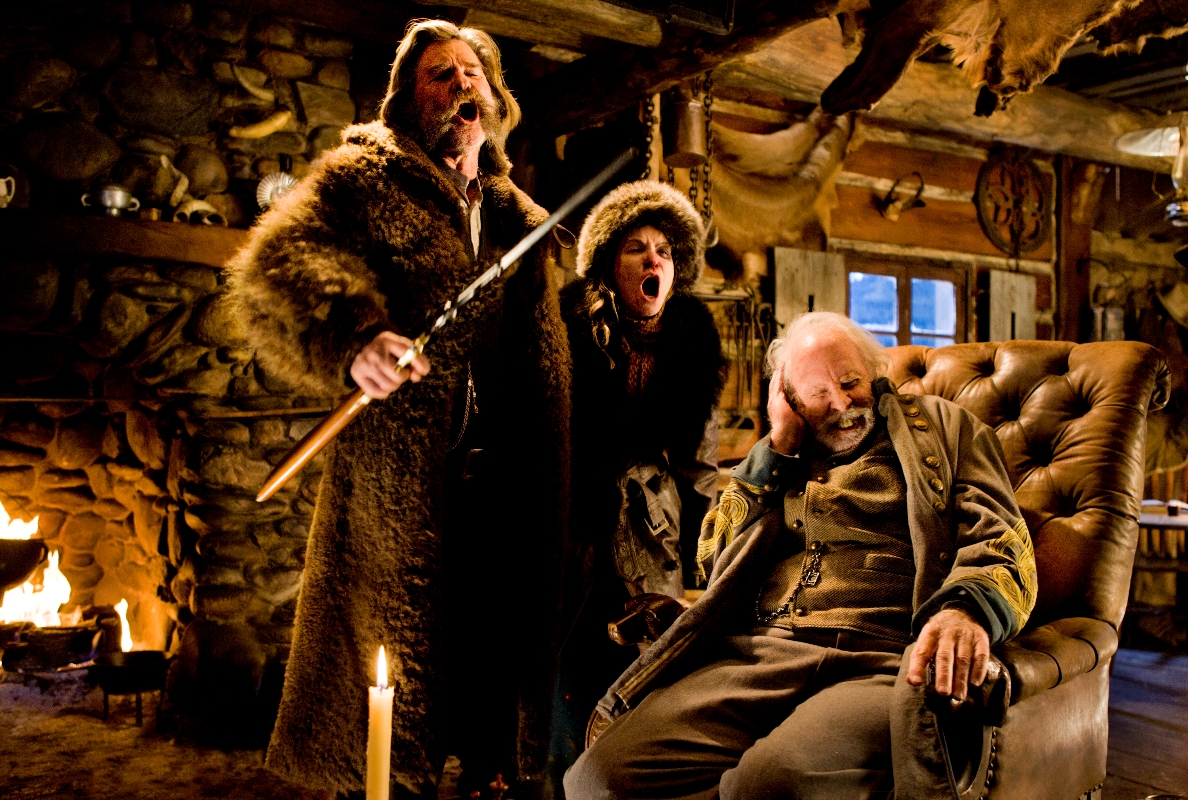“Scrambled is my favorite eggs style. What about yours?” The speaker is Lisa, a lonely, sincere, somewhat vapid woman sharing breakfast with a well-regarded expert on customer service, Michael Stone. The line is vintage Charlie Kaufman: The Oscar-winning screenwriter has an uncanny ear for small talk and eager inanities—the chintzy conversation of the 21st-century mall-dweller. Kaufman risks the acid reflux that can result from writing these characters; there’s a fine line between the despair he conveys over the way we live today and out-and-out contempt for it. But his dialogue is so sharp you can’t help appreciating these people despite themselves (or you’ll be so impressed by the moviemaking experiment—the fact that Adaptation becomes exactly the kind of movie the on-screen Kaufman doesn’t want it to become, for instance—that liking the characters won’t matter).
Anomalisa is lemon-sucking sour, but there are enough gimmicks—and enough lacerating humor—to make the film memorable. Michael Stone is in Cincinnati for a one-day conference. His trek from airport to hotel is ordinary, yet fraught with the nightmare of social interaction—customer service, ironically enough. Kaufman makes talking to cabbies and desk clerks a circle of hell; everywhere Michael is reminded that Cincinnati chili is not to be missed. (I went to Cincinnati once. They never stopped talking about the chili.) Already depressed, Michael collapses completely when a call to a former girlfriend ends badly. Only a chance encounter with Lisa—staying at the Fregoli Hotel for the same conference—seems to offer a ray of sunshine, and an intimate encounter for the night.
This is all in stop-motion animation. Kaufman co-directed Anomalisa with animator Duke Johnson, and they’ve created a detailed puppet-world set mostly inside the featureless hotel. The puppets allow Kaufman to pursue one of his central ideas: To the depressed Michael (voiced by David Thewlis), everyone in the world looks and sounds the same. There’s an actual condition describing this—the Fregoli Syndrome—but Kaufman is interested in existential problems, not psychiatric issues.
They wear different clothes and sport different hair, but all the puppets have the same interchangeable face, pinched and hollow-eyed. (If, like most sane people, you find puppets creepy, these will quickly get under your skin.) They are all voiced by the distinctive character actor Tom Noonan, who perfectly captures a kind of chipper blandness in every man, woman, and child he articulates. The exception is Lisa, given voice by Jennifer Jason Leigh. Michael picks up Lisa and her good-time friend at the hotel, and he clumsily propositions Lisa after they’ve had a few belts. Lisa is frumpy and her conversation is littered with childlike observations, but the fact that her voice rings out like a human presence in a world of sameness explains Michael’s fascination with her. At one point she sings a song—Jennifer Jason Leigh’s second show-stopper of the season, along with her ballad in The Hateful Eight—and for a moment Kaufman’s horror and pity for the human condition seem to merge into one super-focused vision.
Kaufman’s first film as director was Synecdoche, New York, a mind-spinning Chinese box of a concept. Impressively brainy as it was, I thought the film lacked the nimbleness brought by the directors of Kaufman’s previous screenplays, Spike Jonze (Being John Malkovich) or Michel Gondry (Eternal Sunshine of the Spotless Mind). Synecdoche lumbered by contrast. Anomalisa has a similarly plodding pace, although here it feels more appropriate to Kaufman’s goal of capturing the drawn-out experience of social torture. (A box set of his films might be titled Cringe Along With Me.) Just getting Michael from the front desk of the hotel to his room is a death march, as he must navigate the pep talk from his bellhop: “Nice weather we’re having. Yes. The weather is very good. Very . . . very . . . very, very good. [pause] 68 degrees Fahrenheit.” No wonder Michael is ready to clutch at the first sign of something different.
It can’t end happily; whether you think Kaufman justifies his bittersweet ending will depend on your tolerance for these desperate people. “Sometimes there’s no lesson,” Michael muses. “That’s a lesson in itself.” There’s Kaufman stating his philosophy, which isn’t quite enough to mask the vinegary aftertaste of this very, very smart film.
Seattle Weekly covers all the arts, from books to film to dance. If you know something we should know, e-mail arts@seattleweekly.com. Follow us on Facebook and Twitter.







